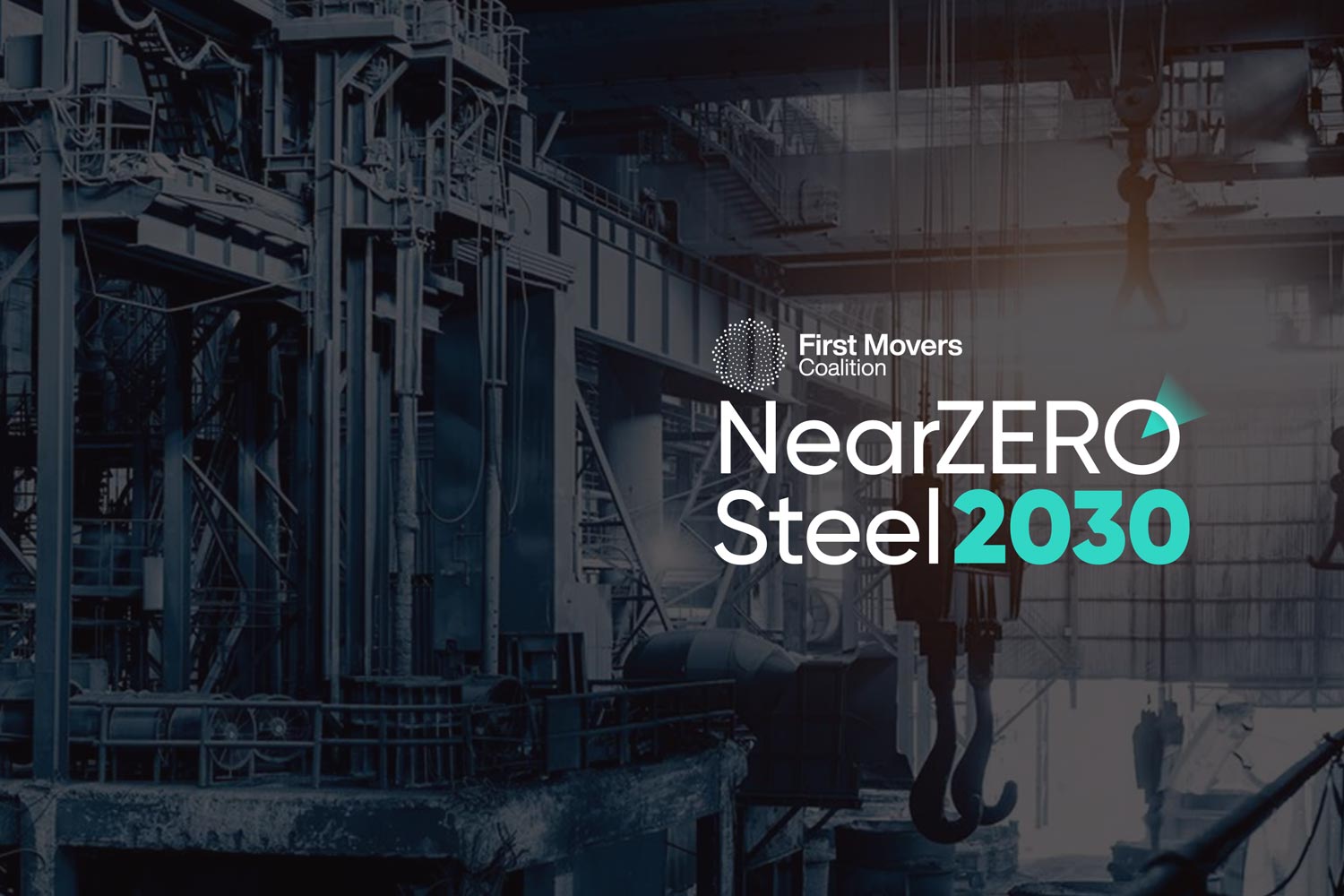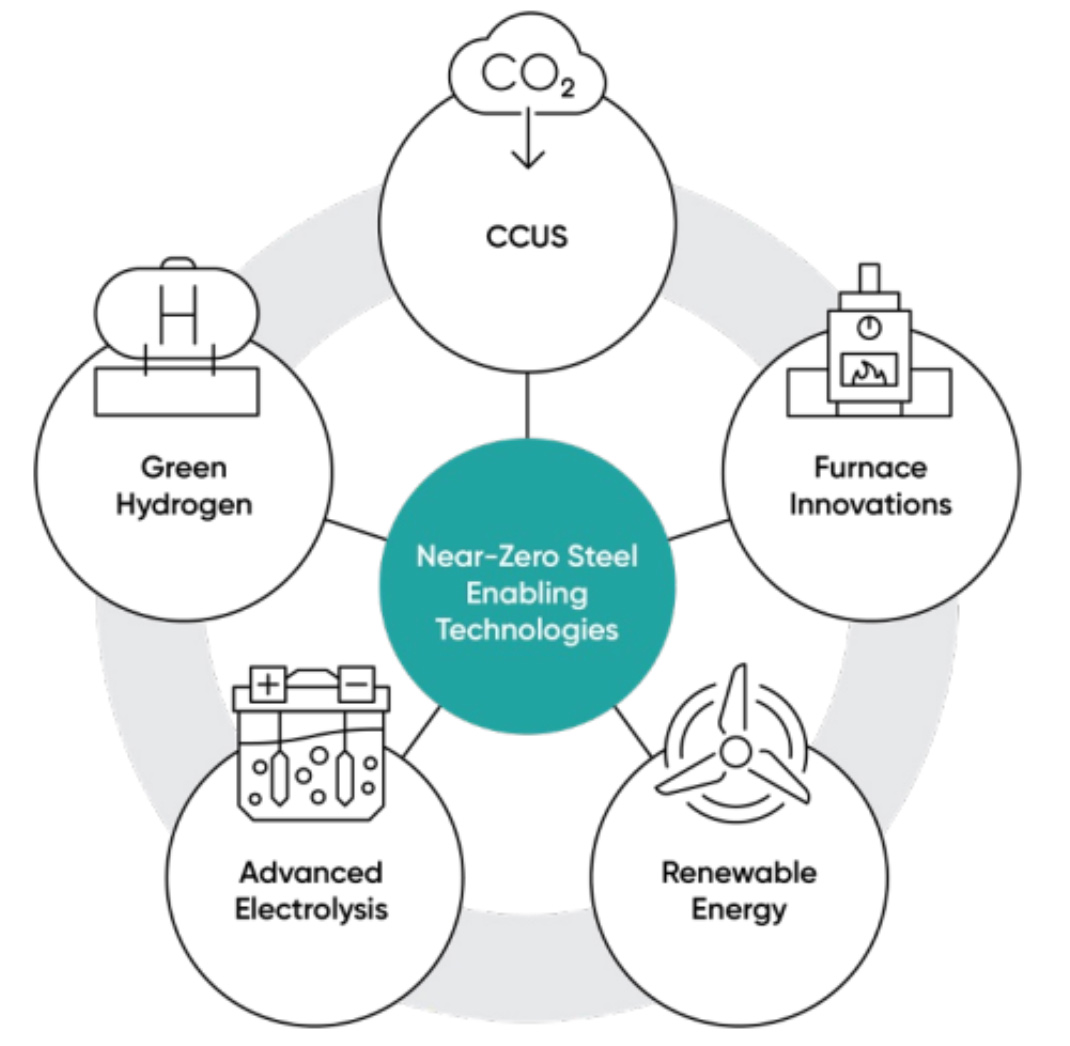Near Zero Steel 2030 Challenge
In partnership with the World Economic Forum's First Movers Coalition

Why is this Challenge important?
Steel is the backbone of modern infrastructure and clean energy technologies, from housing and transport to wind turbines and solar panels. Yet, steel production contributes around 7% of global CO₂ emissions (3.5 billion tonnes annually). With demand expected to rise by 30% by 2050, decarbonising steel is critical to achieving climate targets.
Near-zero emissions steel is defined as steel that produces less than 400 kg CO₂e per tonne at 0% scrap, and less than 50 kg CO₂e per tonne at 100% scrap, in line with IEA and ResponsibleSteel standards.
About this Challenge
The Near Zero Steel 2030 Challenge, delivered by Greenhouse with support from the Swedish Government and the First Movers Coalition (FMC), aims to accelerate global decarbonisation of the steel sector.
The Challenge invited buyers, suppliers, and technology innovators to:
- Catalyse the adoption of near-zero steel.
- Mobilise breakthrough and enabling technologies.
- Aggregate global demand through offtake agreements.
- Foster collaboration across the steel value chain.

The Challenge aimed to accelerate the adoption of near-zero emissions steel by advancing breakthrough technologies such as hydrogen, carbon capture, and furnace innovations. It aggregated global demand through offtake commitments, fosters collaboration across the steel value chain, and aligns all solutions with ResponsibleSteel and IEA standards.

“The Near Zero Steel Challenge is a catalyst for global collaboration, bridging buyers, suppliers, and innovators to transform one of the hardest-to-abate sectors.”
The Challenge process
Following Greenhouse’s proven open-innovation model, the process included:
01
Challenge Definition: Scope aligned with FMC and ResponsibleSteel standards.
02
Global Outreach: Engaged over 1,700 companies via email, LinkedIn, and live events.
03
Collaboration & Engagement: Held 40+ group calls and 120+ individual consultations.
04
Evaluation: Submissions assessed by experts from BCG, RMI, ResponsibleSteel, and Deloitte.
05
Outcomes: Leading proposals advanced to offtake and partnership discussions.
06
Challenge results
110
Submissions across demand, supply, and technology.
2.3 Mt
Demand signalled by global buyers.
16 Mt
Identified by steelmakers
70
Technology submissions across 9 categories
23
Buyers from construction, automotive, and energy sectors
17
Selected top innovators
Key Insights
- High cost, lack of standards, and limited renewable energy remain core barriers.
- Technology providers showed the strongest momentum in innovation.
- Collaboration between steelmakers, buyers, and tech innovators is critical to success.
Partnerships
Delivered in collaboration with:
- First Movers Coalition (FMC): Sponsorship and demand mobilisation.
- ResponsibleSteel: Standards and self-assessment framework.
- RMI: North American steel procurement platform.
- BCG & Deloitte: Evaluation and data support.
- Swedish Government: Funding partner.
Where we are now
The Challenge is now progressing to its next phase:
- Pairing enabling technology providers with steelmakers for pilot projects.
- Supporting offtake negotiations and partnerships.
- Showcasing high-potential projects to industry, investors, and policymakers.
- Driving adoption from 2026, with scaling through 2030.
Impact
By connecting demand, supply, and technology innovators, the Challenge has:
- Sent a strong market signal to accelerate near-zero steel investment.
- Identified global innovators capable of scalable solutions.
- Highlighted barriers and opportunities for industry-wide collaboration.
Collaborate with us
Whether you’re a government, corporate, or industry coalition, we can mobilise the right ecosystem to meet your climate targets.
.svg)